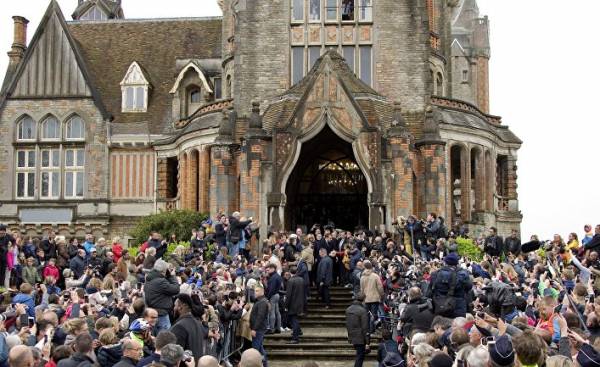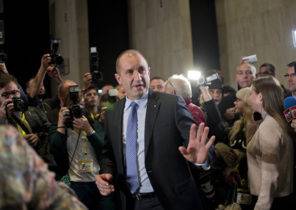
Hillary Clinton lays part of the blame for his defeat on what she calls the “Russian WikiLeaks”, which “raised doubts” in the minds of its potential supporters and “scared them away”. Meanwhile, the same Arsenal of tools — bots, fake news and hacker attacks — was applied against the Emmanuel Macron, but he still won the presidential elections in France, gaining a two-thirds majority of voters.
The set of Internet tools to intervene in elections is well known. The network of accounts in social networks, both real and operated by bots, is campaigning for the populist candidate and against his centrist rival, posting memes and stories are often fake, but seem to be quite reliable people staying in a particular information environment. Meanwhile, the hackers to conduct phishing attacks against the representatives of the election headquarters of the centrist candidate, and then merge into a network of their own finds them again helps a network of activists and bots. That’s exactly what happened during the US presidential election in 2016, France in 2017. In both cases, the campaigns accused Russia, because they were targeted against candidates who treat Russia with relative hostility.
The use of tools from the Arsenal during the French presidential campaign was carefully documented by experts on cybersecurity and those who are involved in validating information.
For example, Laboratory digital forensic analysis at the Atlantic Council gave the response “online army” of marine Le Pen (Marine Le Pen) is on Twitter. A number of key accounts have launched a hashtag, at the same time publikoval a lot of similar posts. These accounts many times and shared each other’s posts, after which the process connected “network” that included activists, and boots, which picked up these tweets and did further distribution. In some cases this approach has allowed some hashtags to get the list of the most popular topics on Twitter. However, the laboratory experts said:
We have no reason to believe that any of the studied hashtag has managed to extend far beyond the online communities of supporters of Le Pen. They really got into lists of most popular topics, however, could not linger there for long. As a rule, they disappear within a few hours.
American alternative community of right, perhaps inspired by the statements that they helped Trump to win, tried to help Le Pen, however, encountered an insurmountable obstacle in the form of a language barrier. The symbol of the alternative right-wing Pepe the Frog did not find the response of French voters.
The accounts of the supporters of Le Pen, both French and foreign, as well as the accounts of supporters of the ultra-left candidates, such as Jean-Luc Mélenchon (Jean-Luc Melenchon), tried to distribute stories, to refute the messages of traditional media. The authors of the study, conducted by Bakamo specializing in social networks, published in April, found that about 24 percent of election-related links exchanged between users in France, pursued such a goal. A significant part of these links was taken from Russian sources of state propaganda, such as RT and Sputnik, which, according to representatives of the Macron, has spread false news.
Those who published such links, generally showed far greater activity in social networks compared to those who quoted the news of traditional media. However, the share of traditional media accounted for 56% of the links shared users. Attempts to reshape the traditional news media and fake news — the exposure of which was actively involved in platforms such as CrossCheck and Les Decodeurs newspaper Le Monde are unable to influence the opinion of a significant number of voters.
The results of a study conducted by experts from Oxford University and published in late April showed that “people discussing French and German policies on social networks, tend to be more high quality sources of information than those discussed in the networks of American politics.” According to the results of this study, such discussions in France and Germany “to a lesser extent distorted” than in the US, and somewhat less based on the content distributed bots. Experts from Oxford also noted that the links that have been shared by French users are twice as likely to have led to content quality Newspapers than for fakes and frankly yellow items. In the United States last year, the ratio was almost 1-1.
The most dangerous fake news — the documents of the offshore account Rules that have surfaced between the two rounds of voting — was very fast and convincingly disproved, and therefore it doesn’t cause any damage.
Hackers also could not affect the outcome of the French elections. Before the first round of voting there was a very real likelihood that Rules can be overcome if there is published any incriminating information about him. That is exactly what happened with the first favorite in the presidential race in France, Francois Fillon (Francois Fillon). At that time, however, when macron was relatively vulnerable to any compromising information about him was not published. And only last Friday, on the eve of the beginning of the “period of silence”, the hackers published a series of stolen emails of colleagues and members of the election headquarters of Macron.
The timing was quite curious. French media and bloggers had nothing to do with these data because in this case they would have violated the silence regime on the eve of elections that would entail appropriate punishment. But whoever collected and not published this series of documents (who was it? Employee IT company, working for the Russian government? People who have a mailbox in the German postal service? A whole group of different people?), he couldn’t find anything particularly interesting. Two days of desperate attempts to find in these letters the juicy details and secrets are not yielded any results, neither WikiLeaks nor foreign reporters who had every right not to pay attention to the requirements of the regime of silence. All I’ve managed to find supporters, Le Pen is openly ironic statement “Je baise le peuple” (“fuck the people”) at the end of a letter, written by one of the members of the election headquarters of Macron.
These published letters will be scrutinized after the election, and quite possibly as a result of verification will be identified some minor violations or errors. However, this will not change the election results and, judging from what I saw, nor in any way does not complicate the life of Makron on a post of the President. The hapless hackers must have hoped to sow confusion and create an atmosphere of suspicion on election day. But macron still won — and with a much more serious gap than many predicted.
Conclusions:
• Campaign in support of Le Pen in social networks are unable to go far beyond the circle of supporters of Le Pen, whose boundaries were much more clearly delineated compared to the radius of the circle of supporters of Donald trump in the US, since Le Pen is much more extensive experience in politics.
• The spread of fake news prevented the relative sophistication and education of French voters, especially if we compare them with the American voters.
• In contrast to the situation in the U.S., centrist candidate in France had nothing to hide — or he had the good sense to prevent leakage of potentially compromising information in the Internet.
Clinton lost not because against it were used online tools to influence public opinion. She lost because a significant number of Americans have decided that it is not trustworthy. Therefore they are so easily believed a fake news and hints of its corruption and dishonesty contained in the published emails.
Protracted attempts to analyze and explain the loss of Clinton Trump hide from us the simplest explanation: it is extremely important to convince the voters that you have no relation to corruption. Macron also removed the obvious advantage of the reluctance of voters to give Le Pen the green light, because her party has long been preaching racist and xenophobic views (American voters pulled Trump with his provocative statements).
Clinton expressed her joy in winning the Macron, which she called “a defeat for those who try to interfere with the mechanisms of democracy.” However, in the history of democracy you can find many examples of dirty methods of conducting pre-election campaigns. Online tools — whether the tools of Russia, alternative right-hand or someone else — is far from to be considered a superweapon. It’s just a bunch of dirty technologies, based on modern methods of information transfer. But these tools should not be considered a magic means of solving all problems. A country with a healthy political culture and interested voters can easily resist them. It is no coincidence that Sunday’s turnout, which amounted to 74,56%, is considered in France is relatively low, whereas in the US, this turnout would be record high since 1896.







